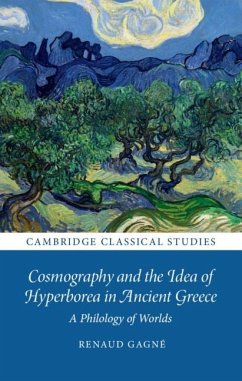Cosmography is defined here as the rhetoric of cosmology: the art of composing worlds. The mirage of Hyperborea, which played a substantial role in Greek religion and culture throughout Antiquity, offers a remarkable window into the practice of composing and reading worlds. This book follows Hyperborea across genres and centuries, both as an exploration of the extraordinary record of Greek thought on that further North and as a case study of ancient cosmography and the anthropological philology that tracks ancient cosmography. Trajectories through the many forms of Greek thought on Hyperborea shed light on key aspects of the cosmography of cult and the cosmography of literature. The philology of worlds pursued in this book ranges from Archaic hymns to Hellenistic and Imperial reconfigurations of Hyperborea. A thousand years of cosmography is thus surveyed through the rewritings of one idea. This is a book on the art of reading worlds slowly.
Dieser Download kann aus rechtlichen Gründen nur mit Rechnungsadresse in A, B, BG, CY, CZ, D, DK, EW, E, FIN, F, GR, HR, H, IRL, I, LT, L, LR, M, NL, PL, P, R, S, SLO, SK ausgeliefert werden.


